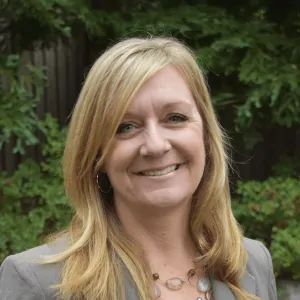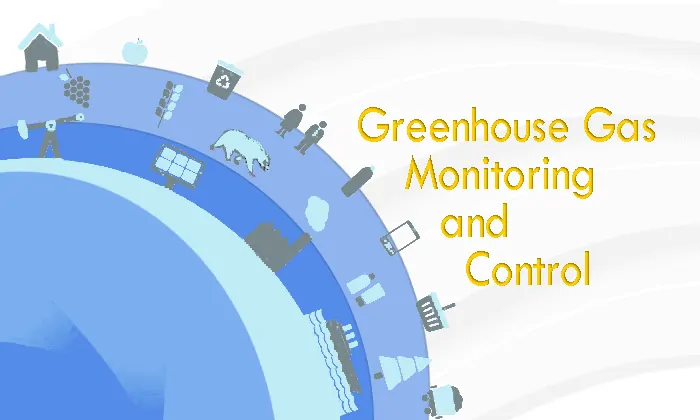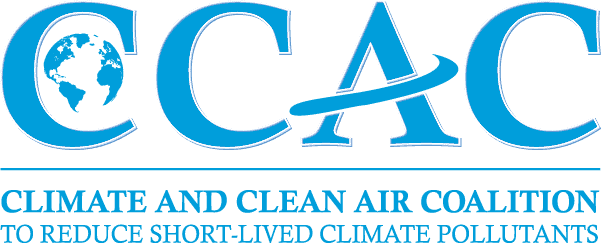

SCS periodically prepares technical bulletins to highlight items of interest to our clients and friends. These are published on our website. This SCS Technical Bulletin addresses:
Read and share the SCS Technical Bulletin here.
SCS Coal Combustion Residual Services
On July 11, 2016, multiple organizations representing the full value chain of cellulosic waste feedstock conversion to transportation fuel sent a letter to Gina McCarthy, Administrator of the U.S. Environmental Protection Agency (EPA). The letter supporting the Renewable Fuel Standard Program: Standards for 2017 and Biomass-Based Diesel Volume for 2018 (Proposed Rule) noted that additional information and factors need to be considered.
Read or share a copy of the letter here, contact SCS Engineers, or one of the organizations below:
SCS Engineers’ Tracie Onstad Bills and Leslie Lukacs were both selected to receive the California Resource Recovery Association’s (CRRA) prestigious Service Award this year. According to CRRA Executive Director, John H. Dane, the award recognizes “exceptional individual service to the organization and a contribution of time or resources beyond expectations.” That sounds like an SCSer alright.

Tracie Bills is SCS’s Sustainable Materials Management Director and is based in our Pleasanton, CA, location. She has been on the CRRA board for 10 years and has served in several leadership positions within the organization, including as its President for three years. Her expertise revolves around commercial recycling technical assistance, environmental purchasing, large venue and event zero waste programs, research and sustainability planning, garbage hauler franchise compliance and review, construction and demolition program / ordinance analysis and writing, climate inventory compilation, research and feasibility studies to help clients with comprehensive waste prevention and zero waste programs.
Leslie Lukacs serves as a Sustainable Materials Management Specialist in our Santa Rosa, CA, office. She has been on the CRRA board for 12 years and also served in a variety of leadership positions. She also founded CRRA’s Green Initiatives for Venues and Events technical council and was an instructor for CRRA’s Resource Management Certification Program for 5 years. Leslie specializes in the design and implementation of sustainable materials management and zero waste programs and is a pioneer in the greening of venues and events throughout the nation. Her extensive expertise in the logistics of zero waste, recycling, and composting programs, such as outreach management, business assistance, master planning, waste audits and characterization studies, extended producer responsibility ordinance preparation and implementation, compliance, grant writing, and administration are all key to successful long-term programs.
Both women were selected by the CRRA Board of Directors to be the 2016 recipients of the Service Award. The awards will be presented at the organization’s Annual Conference Awards Ceremony on August 9 in Sacramento.
CRRA is California’s statewide recycling association. It is the oldest and one of the largest non-profit recycling organizations in the U.S. CRRA is dedicated to achieving environmental sustainability in and beyond the state through Zero Waste strategies including product stewardship, waste prevention, reuse, recycling and composting. The organization provides its members with resources to advance local, regional and statewide waste reduction efforts which result in critical environmental and climate protection outcomes. Members represent all aspects of California’s reduce-reuse-recycle-compost economy and work for cities, counties, municipal districts, and businesses as well as hauling companies, material processors, non-profit organizations, state agencies, and allied professionals.
It’s not just that we like wine and happen to live and work in every wine producing region of the U.S.; SCS Engineers understands the need for clean water resources and how important they are to the wine industry and for agriculture in general. SCS helps wineries face an array of environmental and regulatory challenges including:
SCS is pleased to announce we are the newest member of WIN, the Wine Industry Network.

SCS Engineers offers sustainable environmental solutions to businesses with environmental challenges. SCS provides these services to private and public sector clients through a network of nationwide offices. For more information about SCS, please visit our website at www.scsengineers.com, or contact us at .
SCS Engineers has published two Technical Bulletins summarizing the O&G NSPS final rule and outlining the new LDAR requirements. The two Bulletins explain the modification of how oil and gas sources will be permitted under the Clean Air Act and the new requirements to reduce methane leaks from new oil and gas facilities consistent with the EPA’s New Source Performance Standards.
Reference the U.S. Environmental Protection Agency (EPA) new source performance standards for Crude Oil and Natural Gas Production, Transmission and Distribution (O&G NSPS), which includes amendments to 40 CFR Part 60, Subpart OOOO and a new Subpart OOOOa. Subpart OOOOa will apply to facilities constructed, modified or reconstructed after September 18, 2015.
Click to read or share the Technical Bulletins:
https://www.epa.gov/controlling-air-pollution-oil-and-natural-gas-industry
Pat Sullivan, REPA, CPP, BCES
(916) 361-1297
An SCS Engineers Technical Bulletin will be released early in the week.
The U.S. Environmental Protection Agency issued limits on methane emissions from oil and gas wells that are more stringent than those it proposed last year. The final regulations released on Thursday, May 12, 2016, will add hundreds of millions in additional costs per year; at least 25 percent higher than the preliminary version published in August 2015.
EPA Administrator Gina McCarthy told reporters on a conference call that the mandates, applying immediately to new and modified wells, are a “critical first step in tackling methane emissions from existing oil and gas sources.”
Under the rule, companies must upgrade pumps and compressors while expanding the use of “green completion” technology meant to capture the surge of gas that can spring out of newly fracked wells. Such green completion techniques have been required for new and modified natural gas wells since 2015, but Thursday’s rule would broaden the requirement to oil wells too.
Take me to the EPA summaries. Click on the information sheets listed below:
Dr. Dale W. Daniel, an Associate Professional with SCS’s Oklahoma City office, recently published a summary article of his dissertation research through the U.S. Department of Agriculture’s Conservation Effects Assessment Project. The primary goal of the research was to provide under-standing of the potential climate mitigation services provided through wetland conservation and restoration in the High Plains region of the United States. Focus was placed on greenhouse gas (GHG) emissions from wetlands and adjacent upland landscapes as well as identifying some of the drivers of GHG flux that are influenced by various land management practices. The project also sought to understand how sediment removal from wetland basins influenced Carbon and Nitrogen content as well as Carbon sequestration services.
In 2007, the Society for Ecological Restoration International (SER) stated that global climate change is a real and immediate threat that requires action, and ecological restoration is one of the many tools that can help mitigate that change (SER 2007). However, recent debate within the conservation science community has arisen concerning whether restoring ecosystems for C offset projects may shift focus away from other important benefits to society (Emmett-Mattox et al. 2010). Indeed, not all ecosystem restorations make viable ecological offset projects for industries seeking to reduce their C emissions, and those that do, may not always occur in areas where restoration funding is needed the most. This study demonstrated that management practices focused on restoring natural landscape functions, including native species plantings and basin sediment removal, can increase climate mitigation services provided by wetland and upland ecosystems within a region heavily impacted by land use change.
ISWA President David Newman report from Paris on the United Nations Climate Change Conference (COP21). In his report on the various negotiations and activities in Paris, David Newman highlights the work ISWA is doing with the international organisation Climate and Clean Air Coalition (CCAC). This includes the establishing of work plans for developing country’s major cities including Sao Paulo and Dar Es Salaam and holding the first Finance Workshop on to support cities seeking access to finance for municipal solid waste projects.
SCS Engineers is proud to participate in the Climate and Clean Air Coalition to Reduce Short-Lived Climate Pollutants (CCAC). SCS participates in the CCAC’s initiative to mitigate Short-Lived Climate Pollutants (SLCPs) from the Municipal Solid Waste sector.
The CCAC is a voluntary international framework that encourages countries and organisations to take concrete steps to reduce SLCPs in order to protect the environment and public health, promote food and energy security, and address near-term climate change. The initial focus is on methane, black carbon, and many hydrofluorocarbons (HFCs). Fortunately, as their name indicates, SLCPs have a relatively short lifetime in the atmosphere, and therefore, determined efforts to mitigate them now can significantly reduce their concentrations in a relatively short period of time. Many cost-effective technologies and practices have already been implemented in key sectors around the world and benefits are being seen.
To learn more about the CCAC program contact Dana Murray, a Vice President and the CCAC-SLCP Project Director at SCS Engineers.
David Newman’s report from Paris

SCS is a pioneer in our nation’s efforts to reduce GHG emissions in order to combat global warming. We proactively pursue the development of markets in which major sources of methane (e.g., oil and gas industry, landfills, dairies, etc.) can generate and sell GHG credits by voluntarily installing methane recovery systems and selling the methane as fuel.
Methane is 25 times more powerful than carbon dioxide in terms of its greenhouse effect. Capturing and destroying these emissions can have significant environmental benefits. Simply destroying methane via power generation or sequestration can diminish its GHG potential by 95 percent. Even greater benefits are available if the methane is used as renewable energy in order to offset natural gas or coal-fired power generation.
SCS Engineers is proud to announce its acceptance as an “Actor” in the Climate and Clean Air Coalition to Reduce Short-Lived Climate Pollutants (CCAC). SCS will participate in the CCAC’s initiative to mitigate Short-Lived Climate Pollutants (SLCPs) from the Municipal Solid Waste sector.
The CCAC is a voluntary international framework that encourages countries and organizations to take concrete steps to reduce SLCPs in order to protect the environment and public health, promote food and energy security, and address near-term climate change. The initial focus is on methane, black carbon, and many hydrofluorocarbons (HFCs). Fortunately, as their name indicates, SLCPs have a relatively short lifetime in the atmosphere, and therefore determined efforts to mitigate them now can significantly reduce their concentrations in a relatively short period of time. Many cost-effective technologies and practices have already been implemented in key sectors around the world and benefits are being seen.

The Coalition sponsors eleven initiatives designed to address urgent environmental challenges through collective and individual partners’ action. Some of the initiatives include: reducing black carbon emissions from heavy-duty diesel vehicles and engines; promoting HFC alternative technology and standards; addressing short-lived climate pollutants from agriculture; supporting national planning for action; financing mitigation of SLCPs; regional assessments; and urban health.
Founded in 2012, the CCAC is the first global effort to address the urgent challenge of SLCPs. The Coalition encourages all countries, regional economic integration organizations (REIO), intergovernmental organizations (IGOs), non-governmental organizations (NGOs), and private sector entities that are committed to solving this global and collective challenge to participate in its initiatives. To date, 48 countries, 14 IGOs, and 43 NGOs participate in the CCAC.

Upon receiving the letter of acceptance, SCS Vice President Dana Murray said, “We are pleased to be approved as an Actor and believe this initiative makes a difference in the human health and environment of the cities it assists because it looks at improving municipal solid waste management holistically at the local level.”